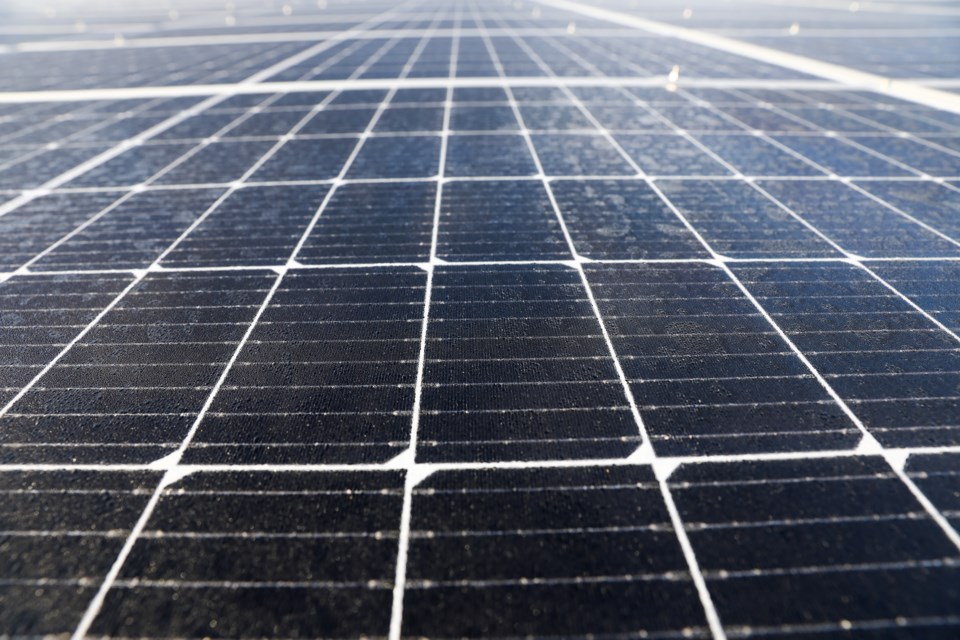The Municipality of Jasper will investigate if rebuilds are eligible for loans to help property owners undertake clean energy retrofits.
Coun. Ralph Melnyk brought up the issue during a public hearing for the clean energy improvement program tax bylaw on Tuesday (Sept. 3).
“We’re in a unique situation,” Melnyk said. “I don’t think this has happened in the province before, and I think we need to be prepared to be able to work with this very good program as people rebuild.”
The clean energy improvement program allows property owners of residential or commercial buildings to undertake energy efficiency and renewable energy upgrades. Alberta Municipalities, an advocacy group for municipalities in the province, is the central program administrator.
Unlike a traditional loan, repayment is facilitated by a tax added to the property’s tax bill. The program is strictly voluntary.
Mona El Dabee, energy and environment manager for the municipality, said this program was for energy improvements being affixed to an existing structure.
One requirement for an application is that the owner does an energy guide to ensure the improvement is adding a benefit to the property.
“Therefore, there needs to already be a baseline, so if there is no current building, we don't have a baseline,” El Dabee said. “Alberta Municipalities is open to working our way around that to see how we can change it, specifically for Jasper, and they did say that in no other city’s program did they accept this to be done to rebuilds or new builds. It’s always on an existing property.”
Mayor Richard Ireland asked if the definition of “eligible properties” could be revised in the bylaw to include rebuilds.
El Dabee explained the program would still require some form of energy guide, meaning it would require an existing building, but she reiterated that Alberta Municipalities was looking to see if they could create a parallel program for rebuilds.
In the meantime, she recommended council go forward with the program so it would be available for existing properties.
CAO Bill Given added the bylaw could be amended at any point in the future, and there might also be other forms of clean energy financing out there for new builds or reconstructions.
Jasper’s participation involves initial costs, including just under $15,000 for onboarding fees and administrative expenses integrated within existing municipal operations.
According to El Dabee, Alberta Municipalities suggested that Jasper’s program would require $200,000 per year. This would require borrowing or using municipal reserves, neither of which would impact the municipality’s debt limits.
The clean energy improvement program tax bylaw authorizes borrowing for the purpose of financing clean energy improvements to eligible properties and allows council to impose a tax to recover the costs of the clean energy improvement.
In Alberta, 27 municipalities have passed similar bylaws, with 17 having active clean energy improvement programs in place.
The typical residential project will cost about $30,000, and the total cost of financing over a 25-year period would be $45,550.
On such a project, assuming an equal split of the five per cent administrative fee, the municipality would collect approximately $750 and recoup its full upfront capital expense and the associated interest.
“There are some limitations to this program, such as the municipality would not enter into a clean improvement agreement when there appears to be limited equity in the property, if an owner does not intend to permanently affix an improvement to the property or if the program administrator has not approved the owner’s application for the improvement,” El Dabee said.
The municipality will also not enter into a clean energy improvement agreement when the cost is less than $3,000 or greater than $50,000.
Council gave second reading to the clean energy improvement program tax bylaw, with some amendments to definitions. There were no written submissions or presentations from the public during the public hearing.
Once Parks Canada certifies the bylaw, it will return to council for a third and final reading.




